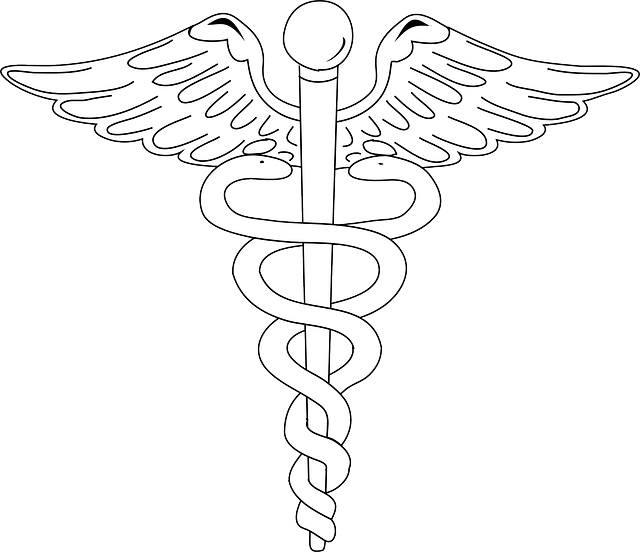In today's global healthcare landscape, translation services for Physician's Treatment Plans UK are crucial to bridge language and cultural barriers. Traditional methods often fall short in accurately translating medical terminology and complex cases, posing risks to patient safety. Professional translation services employ expert medical translators and advanced technologies to ensure accurate, culturally sensitive, and legally compliant translations. This minimizes misinterpretations, enhances care continuity, and leads to better treatment outcomes for diverse UK patient populations. Reputable services adhere to strict standards, maintaining confidentiality and data protection while facilitating effective healthcare communication.
In the UK, ensuring clarity in translated physician treatment plans is paramount for effective patient care. This article explores the challenges of medical translation, highlighting the pivotal role of professional translation services in navigating complex healthcare jargon. We delve into best practices to maintain accuracy and consistency, while addressing legal and ethical considerations unique to medical translation services. Understanding these aspects is crucial for optimizing communication between healthcare providers and patients across diverse linguistic backgrounds, ensuring optimal treatment outcomes with Translation Services for Physician’s Treatment Plans UK.
- Understanding the Challenges of Medical Translation in the UK
- The Role of Professional Translation Services for Treatment Plans
- Ensuring Accuracy and Consistency in Physician Communication
- Best Practices for Effective Patient Care Through Accurate Translation
- Legal and Ethical Considerations in Medical Translation Services
Understanding the Challenges of Medical Translation in the UK

The UK healthcare system, known for its complexity and precision, poses unique challenges when it comes to medical translation. With a diverse patient population and a vast array of languages spoken, ensuring accurate and clear communication in physician’s treatment plans is paramount. Traditional translation methods may fall short, as they often fail to capture the nuances and specialized terminology inherent in medical practice. This can lead to miscommunication, incorrect diagnoses, and potential risks to patient safety.
Translation services tailored for Physician’s Treatment Plans UK must go beyond simple word-for-word substitutions. They require a deep understanding of medical contexts, cultural differences, and regulatory requirements. Specialized translators with expertise in healthcare, who are fluent in both the source and target languages, are essential. Advanced tools, such as machine translation supported by human experts, can enhance efficiency while maintaining high accuracy standards.
The Role of Professional Translation Services for Treatment Plans

In today’s global healthcare landscape, where medical practices often transcend geographical boundaries, ensuring clarity in physician treatment plans during translation is paramount. Traditional methods may fall short when dealing with intricate medical terminology and complex patient cases. This is where professional translation services step in as game changers, especially for Physician’s Treatment Plans UK. These specialized services employ expert translators who are not only fluent in multiple languages but also possess medical proficiency.
By leveraging advanced translation technologies and industry-specific medical glossaries, they bridge the gap between cultural and linguistic variations, ensuring accurate and consistent communication. This is crucial as mistranslations can have severe consequences for patient safety and care continuity. Professional translation services play a vital role in facilitating seamless communication, enabling healthcare providers to deliver high-quality, culturally sensitive care to an increasingly diverse patient population across the UK.
Ensuring Accuracy and Consistency in Physician Communication

Ensuring accuracy and consistency in physician communication is paramount, especially when dealing with translated treatment plans. In the UK, where medical professionals serve a diverse patient population, translation services play a vital role in facilitating clear and effective communication. These services go beyond simple word-for-word translations; they involve specialized medical translators who comprehend both the source language and cultural nuances. This ensures that complex medical terminology is accurately conveyed, minimizing the risk of misinterpretation or miscommunication that could impact patient care.
Consistency is another critical aspect. Reputable translation services employ rigorous quality control measures to maintain consistency in terminology and style across different documents. This uniformity guarantees that patients receive clear, coherent, and comparable information regardless of which translator was involved. Such attention to detail helps to avoid confusion and promotes better patient understanding, ultimately leading to improved treatment outcomes.
Best Practices for Effective Patient Care Through Accurate Translation

In the realm of healthcare, ensuring clarity in patient care across linguistic barriers is paramount. For physicians in the UK, leveraging professional translation services for treatment plans can significantly enhance patient outcomes and satisfaction. Best practices involve engaging qualified translators who are medical experts themselves, to accurately convey complex medical terms and concepts without ambiguity. This meticulous approach guarantees that patients receive precise instructions, enabling them to actively participate in their healthcare decisions.
Effective translation goes beyond word-for-word substitutions; it demands cultural sensitivity and an understanding of regional variations in language. In the UK context, translators must be adept at navigating nuances in medical jargon shared across different ethnic communities. By fostering trust through transparent communication and maintaining patient confidentiality, healthcare providers can ensure that translated treatment plans not only convey critical information but also build a supportive environment for diverse patient populations.
Legal and Ethical Considerations in Medical Translation Services

When translating physician’s treatment plans, especially in the context of translation services for Physician’s Treatment Plans UK, legal and ethical considerations come into play. These documents are critical as they outline patient care strategies, and any errors or misinterpretations could have severe consequences. Therefore, professional translation services must adhere to strict standards.
In the UK, medical translators are bound by ethical guidelines that ensure confidentiality, accuracy, and cultural sensitivity. Legal aspects include compliance with data protection regulations, such as GDPR, which safeguards patient information. Reputable translation companies specialising in medical documents employ native speakers and subject matter experts to bridge the gap between language and healthcare terminology, ensuring clarity and consistency in treatment plans.
In ensuring optimal patient care, especially within the diverse healthcare landscape of the UK, clear and accurate translation services for physician’s treatment plans are paramount. By leveraging professional translation services, healthcare providers can navigate the challenges of medical terminology and cultural nuances, fostering effective communication and enhancing patient outcomes. Adhering to best practices and considering legal and ethical guidelines further strengthens this process, making it a vital component in delivering quality healthcare that respects linguistic and cultural diversity.
